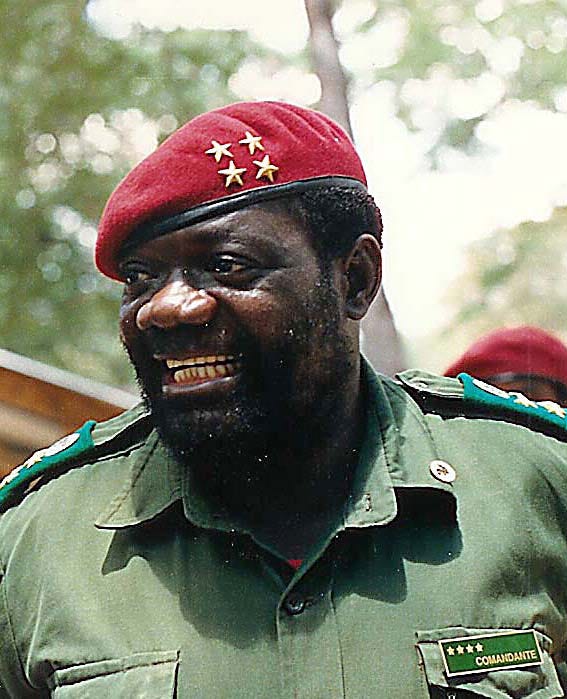An Angolan Warlord's Estate Once Tried to Hire Me
To sue a video game company. I am not making this up.
Right after law school, I joined a small firm with big ambitions. A colleague and I decided to start a finance practice group at this firm, and we succeeded. A surprising side effect was that nobody at the firm really understood what we were doing, and so anything that didn’t neatly fit into an established category (real estate, debt, family, immigration) got routed to me by default.
This firm also had truly remarkable search engine optimization, which led to us rank near the top of search results in bizarre ways. For example, I once got a call from a Canadians guy who Googled “Best US Patent Law Firm” and reported we came up first. We had zero patent lawyers.
These two factors combined to create what remains the strangest potential client call of my career. The caller represented himself as the son of Jonas Savimbi, a man I knew nothing about. General Savimbi, the caller explained to me, was a universally beloved Angolan freedom fighter who waged tireless war against an oppressive government. He was a folk hero to the Angolan people who voluntarily built statues of him. The problem, the caller explained, was that a new Call of Duty game depicted General Savimbi as a vicious warlord (WATCH THE VIDEO!). The game used a highly realistic model of the late General Savimbi, and identified him by name. The caller wanted to know if the Savimbi estate could sue the publisher of Call of Duty.
I told the caller I would love to take the case. As a new lawyer eager to raise my profile, taking a case against a major video game publisher asserting cutting-edge image and likeness claims seemed like a terrific idea. I explained that I’d need birth certificates or similar documentation to prove that the caller was, in fact, authorized to act on behalf of the Savimbi estate. The caller hesitated because these documents were located in Angola, where the caller could not readily travel at the moment (which was my first clue that the “beloved freedom fighter” story might not be quite right). I said bring the documents, and I’d be happy to take the case.
After hanging up, I learned that the caller’s version of General Savimbi’s life differed markedly from the mainstream narrative. The Economist’s obituary for the man reads in part:
HIS death had been reported at least 15 times before. So when the news broke that Jonas Savimbi had been shot dead by government troops, Angolans bottled up their glee until they could be sure. Then they saw television pictures of his corpse … they celebrated in the streets. With the country's most brilliant, energetic and ruthless rebel leader dead, Angolans dared to hope that their wretched land might find peace at last.
Mr Savimbi was not the sole cause of Angola's civil war, but he was probably the most important reason why it has lasted so long. When one casus belli disappeared, he always found another…. Mr Savimbi fought to oust the new ruling party, the Popular Movement for the Liberation of Angola (MPLA), largely because he was not in charge of it.
….And other coverage continued in the same vein.
Ultimately, the Savimbi family was never able to produce the documentation that I needed to start the case. For a few years I wondered if I had even been contacted by the actual Savimbi family at all. But it also seemed unlikely that someone would impersonate a warlord’s estate. It remained a minor mystery.
A few years later, I learned that the Savimbi family did actually sue the Call of Duty publishers in French court, and lost on technical grounds. All told, I think there’s a pretty good chance I was talking to the real family of General Savimib as they were sorting out the right jurisdiction in which to bring their claims.
The moral of the story? Be highly visible to potential clients, and you never know who you might meet!




